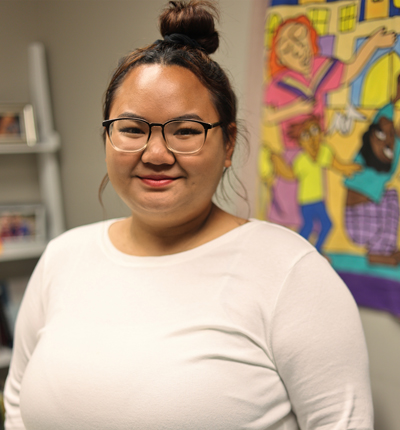I am originally from Thailand and was born and raised in a refugee camp. When I was 5 years old, my parents, brother, sister and I came to the United States. We came to America because it offered us opportunities for growth and a better future.
However, coming to the U.S. was very challenging. Going to school was particularly difficult because I didn't see people who looked like me. For instance, when people asked my name, I couldn't tell them because they didn't know where I was from, making it hard to go to school every day.
Growing up in the U.S. as a refugee, I faced numerous challenges. It was sometimes embarrassing to reveal that I was from outside the U.S. Communicating was challenging, and making friends was tough. I had to learn quickly and adapt to the culture. At times, I felt isolated upon arrival. Fortunately, I managed to overcome these challenges by facing them head-on.
Refugees encounter stereotypes regularly, including the assumption that seeking resources is easy when arriving in a new country, which is far from true. It's a complex process, and one must adapt to a different quality of life and learn many new things to succeed. I believe we can break these stereotypes by working hard for ourselves and not waiting for resources to come to us but rather by creating them. Education played a pivotal role in helping me shatter these stereotypes and gain independence.
My motivation comes from helping people every day in my job. This was especially true during college, where assisting people was part of my role. I find fulfillment in helping others because it aligns with my purpose and offers support to those in need. To me, success means giving back to the community. For example, as a community health educator, I lead several community outreach efforts and facilitate vaccine clinics, providing resources for health education. This is crucial because supporting the community with healthy resources strengthens the refugee community.
My advice for refugees is to discover and continuously reinvent themselves. It's OK to come to a new country to better yourself and your family. This process involves recreating yourself and learning new things every day to adjust, grow and thrive in a new environment. Refugees need to be confident and step out of their comfort zones. Staying within your comfort zone can lead to isolation, which is not conducive to mental well-being. So, always strive to push beyond your comfort zone.
